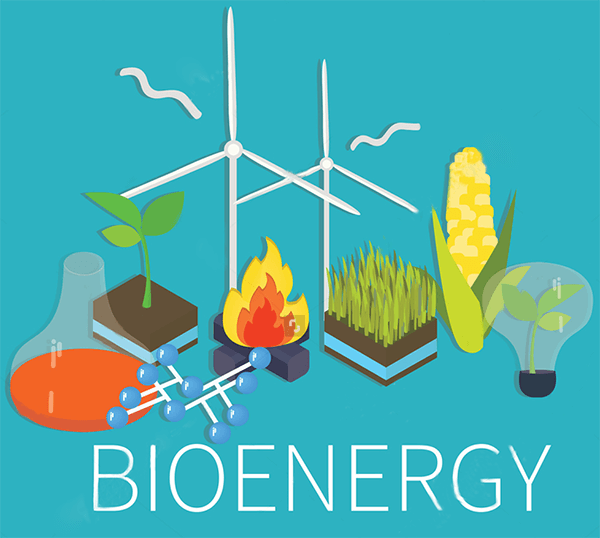Bioenergy has been utilized as fuel in cooking, heating, and lighting for hundreds of years. It is derived from biomass which refers to the organic materials generated by different living organisms, such as crop wastes, forest residues, purpose-grown grasses, woody energy crops, algae, industrial wastes, sorted municipal solid waste, urban wood waste, and food waste. The energy stored in annually produced biomass by terrestrial plants is 3 to 4 times greater than the current global energy demand.

Recent energy independence and climate change policies encourage development and utilization of renewable energy such as solar, wind, geothermal and bioenergy. Bioenergy is a pioneer in renewable fuel study and has been a trusted service provider for agricultural and forest-product industries in the U.S. and other major countries. The U.S. Environmental Protection Agency (EPA) announced a start-up ethanol production at 4 billion gallons in 2006, and an annual increment by 700 million gallons. The switch from fossil-based fuels to bioenergy in recent years has been a major milestone in environment protection as it significantly reduces Green House Gas emission and helps stimulate a substantial development in green economy globally.
Similar to fossil fuels, bioenergy may exist as liquid, gas or solid. For example bioethanol and biodiesel are the most common liquid biofuels in use today, produced from different crops such as various kinds of grasses, shrubs, trees or other herbaceous biomass and even some forms of ocean based seaweeds and algae. However, issues still exist over the efficiency and environmental impacts of the production processes used for first generation biofuels. Therefore the major objective of second generation biofuel technologies is to extend the amount of biofuel that can be produced sustainably. Commonly used biomass consists of the residual non-food parts of current crops and non-food crops, such as stems, leaves and post-extraction husks , as well as industry waste such as woodchips, skins and pulp from fruit pressing. The latest technology development in biofuel generation mainly focuses on lab-based biochemical biomass crops such as perennial grasses, artificial bacteria’s, enzymes and living microalgae. The processing of these materials exhibit little or no environmental hazards; but it generally requires large initial investment and high technical proficiency, which could be an impediment for its commercialization on a large scale.
To improve the process efficiency of biofuel production from alternative plant biomass, Lifeasible has developed a number of industry-leading service products and services to serve the diverse needs of our customers.
Our featured service programs include:
| Bioenergy Characterization | |
| Biomass Pretreatment | |
| Biomass Conversion |